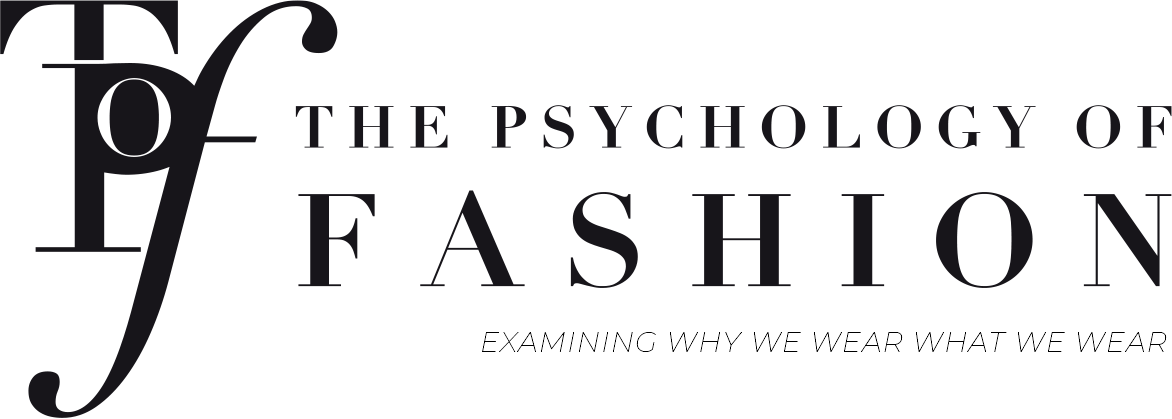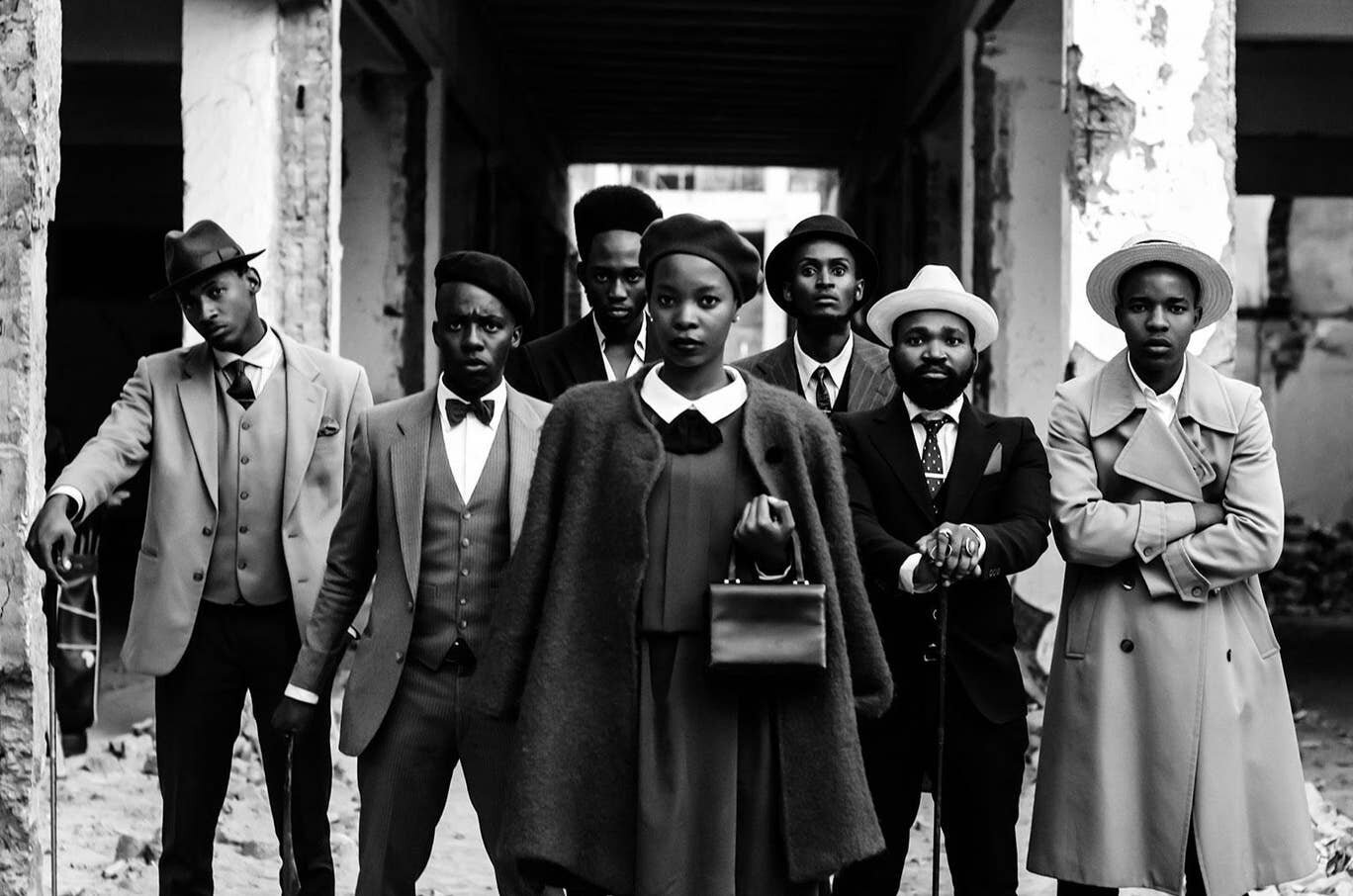Before starting my own business, when I sought new job opportunities, I had a habit of submitting colorful, nontraditional resumes to any company I applied to. Doing so was not only a way to sort out stuffy, restrictive office environments that wouldn’t fit who I was, but it was also my own quiet rebellion against a corporate system I knew I was never meant to fit in in the first place. If my resumé was my “feeler”, then my style and the way I’d show up in those spaces was my unapologetic, differentiating megaphone. I never liked the aspect of fitting in with anyone’s expectations, especially when it pertained to how I presented myself to the world.
My disdain for blending in was sparked in childhood when, day after day, I’d watch my mother pull her fine, chemically straightened hair to the nape of her neck into the same drab ponytail every single day. For twenty years she’d don her military-issued uniform, a mosh-pit of green shades and dullish tan hues, and finish the look with matching combat boots and nondescript accessories to put her own spin on a uniform meant to extinguish every ounce of individuality from her. A necessary state of dress for the Army, but an abomination to my youthful eyes.
I knew then that I could never be a part of anything that required me to adhere to any kind of dress code or uniform and, with the exception of the few retail and restaurant jobs I held while in high school and college, this has mostly been the case. What I was too young to know or even understand at that point was that when you’re a Black woman in America, the act of getting dressed and choosing to own your look is an act of defiance within itself.
Now, reflecting on everything I’ve experienced stylistically, I can say there are five elements to note about my Blackness and my relationship with fashion.
1. FASHION IS DIRECTLY DERIVED FROM OUR PAST
Behind Every Strong Woman, 2014, by photographer Harness Hamese (Photo: theindependent.co.uk)
For many Americans, the way we dress and put ourselves together has been informed by larger cultural forces and trends within the fashion and beauty industries. For African Americans however, there is an additional, invisible layer of influence that impacts how our style of dress has been informed over time.
You can’t talk about Black fashion or style without acknowledging our most controversial and significant accessories: the color of our skin, the texture of our hair and the distinctive composition of our bodies, each of which have been the focus of wonder and experimentation throughout the course of history. Ironically today, the same features that designated us inferior beings are the same ones being co-opted for mainstream use as non-black consumers lean into darkening their skin and modifying their bodies through plastic surgery and appropriating hairstyles native to Black culture.
Our history in this country informs every aspect of how we dress and our relationship with clothing and fashion today. It serves as the foundation for how we actively push beyond the boxes we’ve been placed in and strive to become creators of our own stories, with the goal of establishing ownership over our identities, and others’ perceptions of us.
That same history is why, for many of us, clothing is a tool and our style is our armor, fashioned to the best of our abilities to in many ways, save our lives by signaling value, worthiness and capability to members of society who may still fail to see our worth.
“The casualization of the workplace is a bit of a mind game for Blacks who were taught that success could only be achieved by adhering to specific rules about appearing neat, and professional as a means of communicating capability and intelligence…many of us, choose not to risk it.”
2. FASHION IS A MEANS OF SURVIVAL & SUCCESS
After slavery, when Blacks began to try and make a life for themselves, they knew that in order to survive and be successful, they’d have to “look the part” as much as possible - and so they did, using fashion. They actively assimilated to mainstream cultural norms which meant spending hours dutifully straightening and/or chemically relaxing their hair and wearing their best clothing to appear as competent and as capable as their non-Black peers. For Black people, clothing was more than just a key to success, it was a necessary means of survival.
These sentiments still exist today, and are fully ingrained into how we show up in the workplace and for important events. I was taught, just like many of my peers, that suits were required for job interviews and that braids, natural or afro-textured hair, and loud accessories were not acceptable in the workplace, and I, for the most part complied - at least early on.
Ironically today, depending on the industry and region, this perspective is sometimes seen as outdated as many workplace environments have shifted to a more casual work culture where jeans have become the standard uniform. The casualization of the workplace is a bit of a mind game for Blacks who were taught that success could only be achieved by adhering to specific rules about appearing neat, and professional as a means of communicating capability and intelligence.
Often, we don’t feel as if we have the same permission to show up as casually as our non-Black colleagues and because we tend to have bigger issues to deal with, such as unconscious bias due to our race and/or cultural background, many of us, choose not to risk it.
3. FASHION IS A MEANS OF SIGNALING STATUS
If clothing was perceived as the key to success in non-Black or professional spaces, then it became the key to establishing status within our own communities. Various dimensions of oppression were systemically deployed overtime to ensure that Blacks were not afforded the same opportunities when it came to employment, housing, and education – a practice that inevitably left the Black community perpetually without access to wealth or traditional wealth-building avenues.
Having little to no access to traditional aspects of wealth building like home ownership, meant that branded, expensive clothing became the way we signified our worth to others and in many cases, the louder, and brighter the better. The definition of “wealth” eventually became tied to the material items that we could access much more easily, especially clothing. From fine suits and big bold names of designers sitting across our chests to fancy hats and ornate, flashy jewelry decorating our wrists, ears and necks, this became a new kind of social currency in a community that found itself blocked from achieving wealth in any other way.
Today, the codes of signified wealth and value in the Black community have shifted towards more discreet and experiential codes of aspiration and luxury. Despite this shift, for some members of the Black community (and, ironically now in the fashion world with logomania 3.0) the flashy codes of the past are still very relevant today.
4. FASHION IS A MEANS OF ESTABLISHING A SENSE OF SELF
Ashley Weddington, New York-based influencer and creator of A Styled Mind.
Many of our ancestors were stripped of their cultural artifacts and accessories when they first arrived on American soil. Over time, they learned to forget or suppress anything within themselves that did not adhere to American norms and expectations, which was vital for survival.
Today however, there is new energy around the state of Black identity as we begin to engage with our forgotten pasts and boldly lean into aspects of our identity that haven’t always fit into the American mold - myself included.
In undergrad I wrote a paper on the history of Black hair in America that would be the catalyst to my own cultural awakening. What I learned about the ways in which our natural hair had been weaponized against us permanently changed my perspective. I stopped relaxing my hair, cut it all off and went natural the day that I graduated. In 2007, in Virginia, choosing to wear my naturally kinky tiny afro was not only a rebellious act within the Black community, especially as it pertained to beauty ideals, but it was also perceived as a ticket to inevitable failure.
But I didn’t care. I made up my mind that if a job (or a person) couldn’t take me as I was, and as I desired to be, then that job (or individual) was never meant for me in the first place. This became my mantra as I navigated corporate America.
Today, I have a reputation with my clients for consistently showing up in different hairstyles, colorful outfits, and impeccable make-up. This fusion has become my armor, whereby the polished way I style myself signals my professional ability and experience level, and my hair- sometimes big and vivacious, sometimes laden with weaves and ridiculously long extensions, and sometimes full of color, reflects my creative, rebellious side.
There are still many times, however, where when I’m not sure what kind of clients will be sitting around the table when I enter a room for the first time, I’ll make sure that my hair is not the cause of too much distraction. Once a relationship is established, the full version of me comes out of the closet.
5. FASHION ASIDE, BEING BLACK IS A POLITICAL ACT
Ieshia Evans being detained in Baton Rouge, Louisiana, for protesting on July 9, 2016, in the aftermath of the shooting by police of Alton Sterling and Philando Castile. (Photo: Jonathan Bachman/Reuters)
Ultimately though, for Black people, the act of dressing is both personal and political. It is a personal statement about who we are and how we see ourselves as individuals. That makes fashion personal. But style occurs within the context of the spaces we exist in, many of which we were never meant to occupy in the first place. And that makes it political.
There is a silent, rumbling rage in us that comes to life with boundary-pushing, unconventional styles of dress, and creative self-expression, almost as if we were trying to make up for the way our ancestors were stripped of their agency and sense of identity in the past; the way they were perpetually “othered” and carelessly grouped into homogenous groups of Blackness, void of nuance, and cultural distinction; the way their appearances were heavily policed, scrutinized, and misrepresented in media and society for centuries, and well into today.
For us, fashion is paying homage, it is securing safety, it is signaling worth, it is screaming in silent rooms, it is seeing color, it is decorative armor, it is re-centering lost agency, it’s telling our stories, it is celebrating our pasts, and sometimes, more than anything, it is a hopeful passport to a post-racial world that never seems to materialize.
But sure. Call it self-expression or whatever.
Whitney Dunlap-Fowler is the owner, of Touch of Whit Creative and is based in NYC.

















In the world of post-pandemic dressing, one word has taken social media by storm: cheugy (pronounced: chew-gee). In the worlds of fashion and lifestyle, cheugy describes a look, a thing or a person that’s considered out of date.